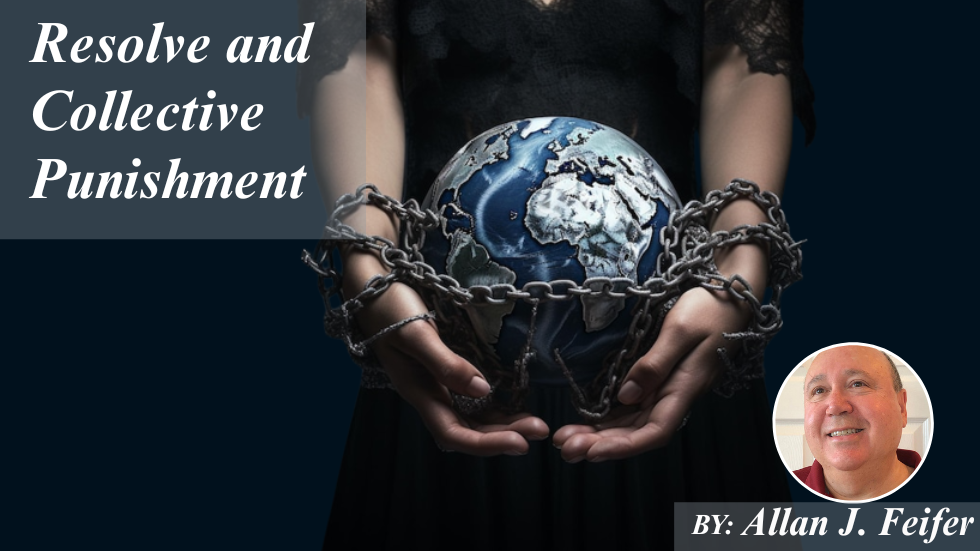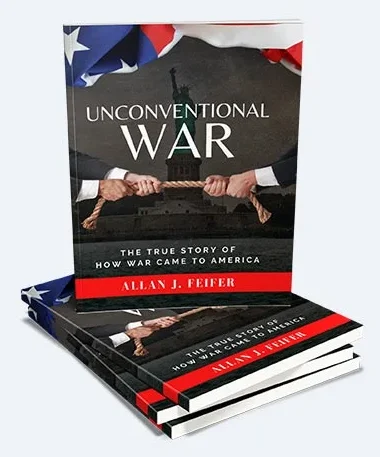When I was very young, my brother or I left the gate open, and the dog got out. I remember being punished with my brother since no one fessed up. When I attended summer camp, someone intentionally stopped up a toilet. All of us were restricted until the culprit eventually came forward. Over a lifetime, I’ve come to understand collective punishment as nothing happens in a vacuum; causal factors must be considered in context. Collective punishment is frequently used as a form of deterrence against future acts.
From Vietnam to Today – Dilemma of Collective Punishment:-
America’s lack of resolve has allowed evil to flourish across the globe since we gave up – as distinguished from losing – in Vietnam. A nation that lacks determination is easily manipulated and winds up with two choices: Give in or fight on futilely. America’s DNA has been weakened, now requiring quick solutions to frequently complex or implacable issues that don’t lend themselves to easy, cost-free solutions. The terrible situation in Israel has all the worst features of a lack of American resolve on display.
Our enemies exploit the weak, nonexistent, or hopelessly flawed consensus leadership style in favor today using collective punishment policy. Example: Biden makes an emergency call to Netanyahu to be more careful dropping bombs & demanding humanitarian pauses in Gazan. Hanging in the air is the fallacy of equivalencies that somehow war can be fought with civility. It can’t. Biden’s leadership team seems to be enamored with Star Trek. My evidence is that they believe war should be fought, like “A Taste of Armageddon,” where war is simulated, with each side humanely executing its own casualties as life goes on normally for others.
Below are examples of flawed leadership decisions. When we get the big decisions wrong, it costs lives, treasure, respect, and miscalculation worldwide. Watch as we over and over take actions that are frequently the least provocative or proportionate response, signaling a lack of will and resolve to enemies that only respect brutal strength. History is replete with our mistakes and overreach, as an article from National Interest discloses:
-
- Vietnam: “Defense Secretary Robert McNamarawrites a mea culpa in which he admitted how wrong the Johnson administration was: “We misjudged then—as we have since—the geopolitical intentions of our adversaries. We can add that our tactics, resolve, and political will were all mismatched to the challenge we took on.”
-
- Lebanon: “By 1982, Lebanon ceased to be an independent state. Israeli, Palestinian, and Syrian forces were engaged in a contest for power, supporting various militia groups. Concerned another Arab-Israeli war was in the offing, President Ronald Reagan signed a national security directive mandating U.S. military participation in a multinational peacekeeping force, making official U.S. policy to “strengthen the ability of the Government of Lebanon to control, administer, and defend its sovereign territory.” However, peace was not to be. Fighting continued with the PLO, Syria, and nascent Iranian proxies unwilling to stand down. 318 U.S. Marines and French soldiers would die from Hezbollah suicide bombers. By 1984, we were out.
-
- Iraq. While far less deadly for U.S. troops than America’s misadventure in Vietnam forty years earlier, the U.S. invasion and occupation of Iraq will forever be referred to as America’s most significant foreign policy disaster. The purpose of the invasion — the overthrow of Saddam Hussein’s regime and the establishment of a pro-American democracy in Baghdad— was based on an uninformed naïveté about the ease with which a Western power could transplant a new system of government into the Arab world. If this was the first time we made that mistake, we could be forgiven for our desire to see freedom and prosperity for other nations. But we’ve made this mistake many times. Why don’t we learn from our mistakes?
-
- Libya. “Muammar el-Qaddafi’s violent suppression of peaceful protests against his four-decade rule forced the international community to scramble for a response. In March 2011, the U.N. Security Council adopted a resolution authorizing the protection of civilians by all necessary means. A NATO-led military alliance against Qaddafi would change from civilian protection to regime change. Qaddafi was deposed within months.”
-
- 9/11 terrorists attacked the U.S. homeland, leaving Americans thirsty for vengeance, which President Bush delivered. “By December 2001, the Taliban regime sheltering Al Qaeda was eviscerated. Many of Osama bin Laden’s lieutenants were killed or captured.” An old Chinese proverb says, “If you seek revenge, you should dig two graves.” America has too often sought tit-for-tat revenge instead of acting through the lens of strategic interest. Victory comes to those who operate through logic, dedication, and ruthlessness when required. There are no cheap victories. Let no enemy underestimate your resolve. This is likely the only way you save lives over time.
-
- Perhaps no misstep so profoundly marked the new Biden administration and set the tenor for all future strategic decisions as the botched Afghanistan withdrawal. The single action of withdrawing 2,500 remaining troops is directly tied to the fall of the Afghanistan government to the Taliban and was a gift of immeasurable import to Iran, which now dominates that country and the region. America’s loss of prestige among coalition nations and leaders around the area never recovered. Biden replaced, demoted, or retired senior officers who were at odds with his decision, leading to a further decline in our warrior culture.
-
Each example has a common fallacious thread: military power can be a scalpel to excise evil surgically, and locals will automatically support us. Eventually, the hand that feeds will likely be bitten off, as we have learned through bitter experience. Limited war strategies fail without near-universal support from other major world powers, which can be difficult, if not impossible, to get or maintain.
Russia, China, Iran, and North Korea are traditional enemies. Together, they synchronize their actions against us, exploiting our political fractures and lack of fortitude. Even worse, our alliances see defections from traditional allies like Turkey, Brazil, and other nations. We have not come to understand that the free world is being outsmarted and isolated in a manner detrimental to our economy and freedom of movement. This forces us into isolation and reflexive actions against our interests.
Our resolve is being tested once again. An excellent example is Iran attacking U.S. bases in Syria and Iraq at least 50 times. Our disconnected response is the minimum kinetic action possible. We literally wait until warehouse employees go home for the night to attack! What does that communicate to Iran and the rest of the new Axis of Evil about our will?
Controversial National Policy Under Fire:-
A national policy that is based on collective punishment that does not explicitly name or punish our enemies gets our people killed, maimed, or injured. Our equivalencies and actions betray a lack of resolve, leading to constant testing by our adversaries of collective punishment.
It is not inevitable that we must constantly lose. Take Rome as an example. Rome controlled over 2 million square miles at its zenith. It did so with only about 300,000 men, dwarfed by those subjugated in the lands it conquered. How did it hold sway for so long? Rome was ruthless but fair. Few dared to revolt; repercussions were severe. Our power and abilities are thousands of times greater than the Romans could muster, yet we always seem to fight the wrong enemy at the wrong time and apologize while doing it.
We must learn these lessons quickly, or we will eventually lose everything. Nations cannot remain intact when internal discord is high. That lesson is on full display in America, where forces attempting to redefine who and what America is are tearing us apart. We need inspired leadership, but where will it come from?
God Bless America.
Allan J. Feifer—Patriot
Author, Businessman, Thinker, and Strategist. Read more about Allan, his background, and his ideas to create a better tomorrow at www.1plus1equals2.com



You correctly identify our military defeats. However, I think you should identify the prime power that motivates the worldwide protests and fuels the hate toward two groups (Little Satan and Great Satan).
The single word that nobody can mention is ISLAM! The three foundational books outline exactly the current world events. The cult adherents are required to kill or enslave every infidel on the earth.
When someone says he will kill you — consider the threat is serious.